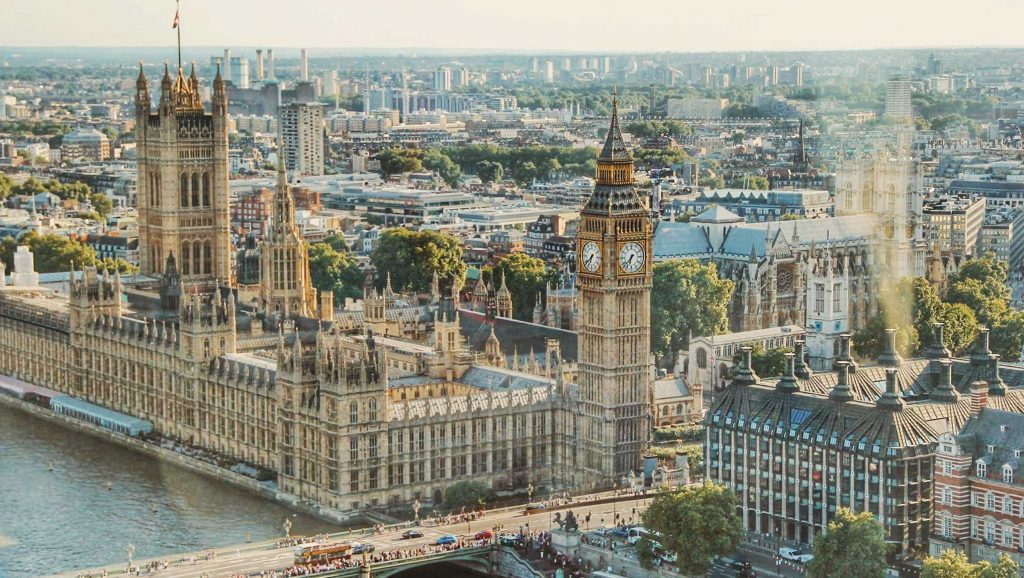
The Unified Kingdom is a well known objective for explorers, understudies, and experts from around the world. Whether you’re wanting to visit the UK for a short stay, study, work, or join a family, understanding the visa application process is urgent. This guide will walk you through the means of applying for a UK visa, including the various kinds of visas accessible, the application cycle, and tips for an effective application.
1. Understanding the Various Kinds of UK Visas
Before you apply for a UK visa, it means a lot to realize which sort of visa you really want. The UK offers different visas relying upon the motivation behind your visit. Here are the fundamental classifications:
A. Guest Visas
Guest visas are for the individuals who need to visit the UK for the travel industry, business, or to see loved ones. The Standard Guest Visa is the most widely recognized type, permitting you to remain in the UK for as long as a half year.
Subcategories:
Traveler Visa: For those meeting for relaxation or get-away.
Business Visa: For going to gatherings, meetings, or other business-related exercises.
Family Visa: For seeing relatives in the UK.
B. Understudy Visas
Understudy visas are for the people who intend to concentrate on in the UK. The Level 4 (General) Understudy Visa is the most well-known, permitting you to remain in the UK however long your course would last.
Subcategories:
Transient Review Visa: For short courses or English language courses enduring as long as 11 months.
Level 4 (General) Understudy Visa: For full-time understudies signed up for a course at a UK establishment.
C. Work Visas
Work visas are for the people who need to work in the UK. The sort of work visa you really want relies upon your work, capabilities, and abilities.
Subcategories:
Level 2 (General) Visa: For gifted laborers with a proposition for employment from a UK business.
Level 5 (Brief Specialist) Visa: For impermanent laborers in unambiguous areas, for example, good cause work, sports, or imaginative fields.
Level 1 (Business visionary) Visa: For the people who need to begin a business in the UK.
D. Family Visas
Family visas are for the people who need to join relatives living in the UK. This visa is accessible in the event that you are a companion, accomplice, kid, or parent of a UK resident or settled individual.
E. Settlement Visas
Settlement visas, otherwise called Endless Leave to Remain (ILR), are for the people who need to live in the UK for all time.
2. Qualification Prerequisites for a UK Visa
The qualification necessities for a UK visa shift contingent upon the kind of visa you are applying for. Be that as it may, a few general prerequisites apply to most visa classes:
A. Substantial Visa
You should have a substantial visa or travel report with sufficient legitimacy for your visit in the UK. It ought to have no less than one clear page for the visa.
B. Evidence of Direction of Visit
You want to give reports that make sense of the inspiration of your visit, for example, a greeting letter, conference subtleties, or an acknowledgment letter from a UK instructive foundation.
C. Monetary Security
You should exhibit that you have an adequate number of assets to help yourself during your visit in the UK. This can be appeared through bank explanations, sponsorship letters, or verification of pay.
D. English Language Capability
For specific visas, especially understudy and work visas, you might have to exhibit your English language capability by stepping through a supported English exam, like IELTS.
E. Wellbeing and Character Prerequisites
You might have to go through a wellbeing check or give a tuberculosis (TB) test endorsement in the event that you are from a nation where TB is predominant. Furthermore, you might have to give a police freedom declaration to demonstrate your great person.
3. Moves toward Apply for a UK Visa
Applying for a UK visa includes a few stages, which can differ marginally contingent upon the kind of visa. Here is an overall outline of the cycle:
Stage 1: Decide the Kind of Visa You Really want
Begin by distinguishing the sort of UK visa you want in view of the reason for your visit. Ensure you meet every one of the particular necessities for that visa classification.
Stage 2: Accumulate Required Archives
Gather every one of the records expected for your visa application. This normally incorporates your identification, monetary archives, evidence of direction of visit, and any extra records intended for your visa type.
Stage 3: Complete the Internet based Application Structure
You should apply for most UK visas online through the UK government’s true visa application site. Complete the web-based application structure, giving exact and honest data.
Stage 4: Pay the Visa Application Charge
In the wake of finishing the web-based application, you should pay the visa application charge. The charge differs relying upon the kind of visa and the length of stay. Installment can be made web based utilizing a credit or charge card.
Stage 5: Timetable a Biometric Arrangement
As a component of the application cycle, you should plan an arrangement to give your biometric data (fingerprints and photo). This is ordinarily finished at a visa application focus in your country.
Stage 6: Go to the Biometric Arrangement
Go to the biometric arrangement on the planned date. Bring your identification and some other reports expected for your visa type. After your biometric information is gathered, your application will be handled.
Stage 7: Present Your Supporting Records
Contingent upon the visa type, you might have to present your supporting records either on the web or face to face at a visa application focus. Guarantee that all reports are finished and meet the UK visa prerequisites.
Stage 8: Hang tight for a Choice
Subsequent to presenting your application and supporting records, you should sit tight for a choice. Handling times can fluctuate contingent upon the kind of visa and your nation of home. You can follow the situation with your application on the web.
Stage 9: Accept Your Visa
On the off chance that your application is effective, you will accept your visa, either as a sticker in your identification or a computerized visa, contingent upon your nation of home. Make a point to check the visa subtleties, including the legitimacy dates and any circumstances connected.
4. Tips for an Effective UK Visa Application
To expand your possibilities of an effective UK visa application, follow these tips:
A. Begin the Interaction Early
Visa applications can take time, particularly in the event that you really want to assemble reports, take a language test, or timetable a biometric arrangement. Begin the application cycle well ahead of your arranged travel date.
B. Give Exact Data
Guarantee that all the data you give in your application is exact and honest. Off base or deluding data can prompt postponements or visa refusal.
C. Sort out Your Archives
Sort out your supporting archives obviously and consistently. Utilize an agenda to ensure you have incorporated every one of the necessary reports.
D. Look for Proficient Exhortation if necessary
On the off chance that you are uncertain about any piece of the application cycle or have complex conditions, think about looking for counsel from a migration legal advisor or visa specialist.
5. What to Do Subsequent to Accepting Your UK Visa
Whenever you have accepted your UK visa, there are a couple of things you want to do prior to voyaging:
A. Check Your Visa Subtleties
Ensure that every one of the subtleties on your visa are right, including your name, visa type, legitimacy dates, and any circumstances. On the off chance that you notice any mistakes, contact the visa application focus right away.
B. Plan Your Movement
Book your flights and convenience well ahead of time. Ensure you have every one of the essential reports, like your identification, visa, and travel protection, prepared for your excursion.
C. Get to know UK Movement Rules
Prior to voyaging, find out more about the UK’s movement rules, including what you can and can’t bring into the country, customs guidelines, and what’s in store at line control.
D. Plan for Your Visit
In the event that you are going for a more drawn out stay, for example, for work or study, ensure you are ready for life in the UK. This incorporates organizing convenience, figuring out the nearby culture, and knowing how to get to medical care and different administrations.
6. Broadening or Changing Your UK Visa
In the event that you wish to broaden your visit in the UK or change your visa type, you might have the option to do as such by applying for a visa expansion or changing to an alternate visa class. This is how it’s done:
A. Visa Augmentation
To remain longer, you can apply for a visa expansion. This is normally done on the web, and you should apply before your ongoing visa lapses.
B. Exchanging Visa Classes
In the event that your conditions change while you are in the UK, you might have the option to change to an alternate visa class. For instance, in the event that you are on an understudy visa and get a proposition for employment, you might have the option to change to a work visa.
C. Meeting the New Visa Necessities
While applying for a visa expansion or exchanging classes, you should meet the prerequisites for the new visa. This might incorporate giving refreshed reports, like confirmation of assets or another Testament of Sponsorship (CoS).
7. What to Do Assuming Your UK Visa Is Rejected
Assuming your UK visa application is rejected, it’s essential to comprehend your choices and what steps you can take straightaway.
A. Figure out the Justification behind Refusal
The UK Visas and Migration (UKVI) will give motivation to your visa refusal. Understanding the explanation can assist you with resolving any issues and work on your possibilities assuming that you choose to reapply.
B. Think about Reapplying
Assuming the justification for refusal is something that can be adjusted, for example, missing reports or inadequate monetary proof, you might have the option to reapply. Make a point to resolve the issues referenced in the refusal notice.
C. Claim or Regulatory Audit
On the off chance that you accept your visa was wrongly denied, you might have the choice to demand a regulatory survey or allure the choice. This interaction includes UKVI exploring the choice to guarantee it was made accurately. This is the way you can continue in the event that your UK visa is declined:
D. Regulatory Audit
A managerial survey is an interaction where the UK Visas and Migration (UKVI) surveys the choice to deny your visa application. This choice is accessible for particular kinds of visas, like Level 4 (Understudy) and Level 2 (Work) visas.
Ventures for Managerial Audit:
Demand a Survey: You should demand a regulatory audit in the span of 28 days of getting the refusal choice. The solicitation can be made on the web.
Give Supporting Records: You can present extra archives to help your case, however you can’t present new proof that was excluded from the first application.
Hang tight for the Result: UKVI will audit your case and may upset the choice assuming they observe that a blunder was made. The interaction can require half a month.
E. Offer the Choice
At times, you might reserve the option to pursue the choice to reject your visa. This is more normal for blood related visas or cases including common liberties.
Ventures for Engaging:
Actually take a look at Your Entitlement to Allure: Not all visa refusals accompany the option to pursue. Survey the refusal notice to check whether you reserve the option to pursue.
Record the Allure: Requests are typically documented with the First-level Court (Movement and Haven Chamber) in no less than 14 days of getting the refusal notice.
Go to the Consultation: Whenever required, you might have to go to a meeting to communicate your viewpoint. You might need to look for legitimate portrayal to assist with the allure.
F. Look for Lawful Counsel
Assuming your visa is denied and you’re uncertain about the subsequent stages, looking for legitimate advice is prudent. Movement legal advisors can assist you with figuring out your choices, set up your case for a managerial audit or allure, and give direction in the interim.
8. Life in the UK In the wake of Showing up
When you’ve effectively gotten your UK visa and shown up in the UK, there are a few things you ought to do to get comfortable and guarantee your visit is smooth and charming.
A. Register with a GP (General Expert)
The UK has a Public Wellbeing Administration (NHS) that gives medical services to occupants. In the event that you’re remaining in the UK for a significant stretch, you ought to enlist with a neighborhood GP to get to medical care administrations.
B. Open a UK Financial balance
On the off chance that you’re remaining in the UK for in excess of a couple of months, it’s smart to open a UK financial balance. This will make it more straightforward to deal with your funds, get installments, and cover bills.
C. Investigate Public Vehicle
The UK has a broad public vehicle framework, including transports, trains, and the London Underground. Find out about neighborhood transport choices to make getting around more straightforward.
D. Figure out Social Standards
The UK is a multicultural society with different traditions and customs. Carve out opportunity to find out about UK culture, manners, and accepted practices to help you coordinate and take full advantage of your time in the country.
E. Join Social and Expert Organizations
Whether you’re in the UK for work, study, or seeing family, joining social or expert organizations can assist you with associating with others, assemble companionships, and extend your chances.
9. Leaving the UK: What You Want to Be aware
At the point when your visit in the UK reaches a conclusion, there are a couple of things you ought to do prior to leaving:
A. Check Your Visa Expiry Date
Ensure you know about your visa expiry date and plan your flight appropriately. Exceeding your visa can prompt legitimate outcomes and may influence your capacity to get back to the UK later on.
B. Close Financial balances and Settle Bills
Assuming you have a UK ledger, guarantee that you close it prior to leaving. Likewise, settle any remaining bills, like utilities or lease, to stay away from issues after you’ve left.
C. Drop Memberships and Agreements
Drop any memberships, participations, or agreements you have in the UK, for example, rec center enrollments, telephone agreements, or internet providers.
D. Illuminate Your Property manager or Convenience Supplier
On the off chance that you’re leasing convenience in the UK, tell your property manager or convenience supplier of your flight date. Try to pass on the property looking great to accept your store back.
E. Express Farewell to Companions and Partners
Set aside some margin to express farewell to companions, associates, and any other person you’ve associated with during your visit in the UK. Trade contact subtleties to keep in contact.
10. End: Planning for Your UK Visa Application
Applying for a UK visa can appear to be overwhelming, however with cautious planning and an unmistakable comprehension of the cycle, you can build your possibilities of an effective application. Make sure to begin the cycle early, accumulate every important record, and look for proficient counsel if necessary.
Whether you’re wanting to visit, study, work, or join family in the UK, this manual for applying for a UK visa furnishes you with the fundamental stages and tips to flawlessly explore the cycle. The UK offers an abundance of chances, and with the right visa, you can anticipate an enhancing experience in one of the world’s most energetic nations.
Best of luck with your UK visa application, and partake in your time in the UK!







